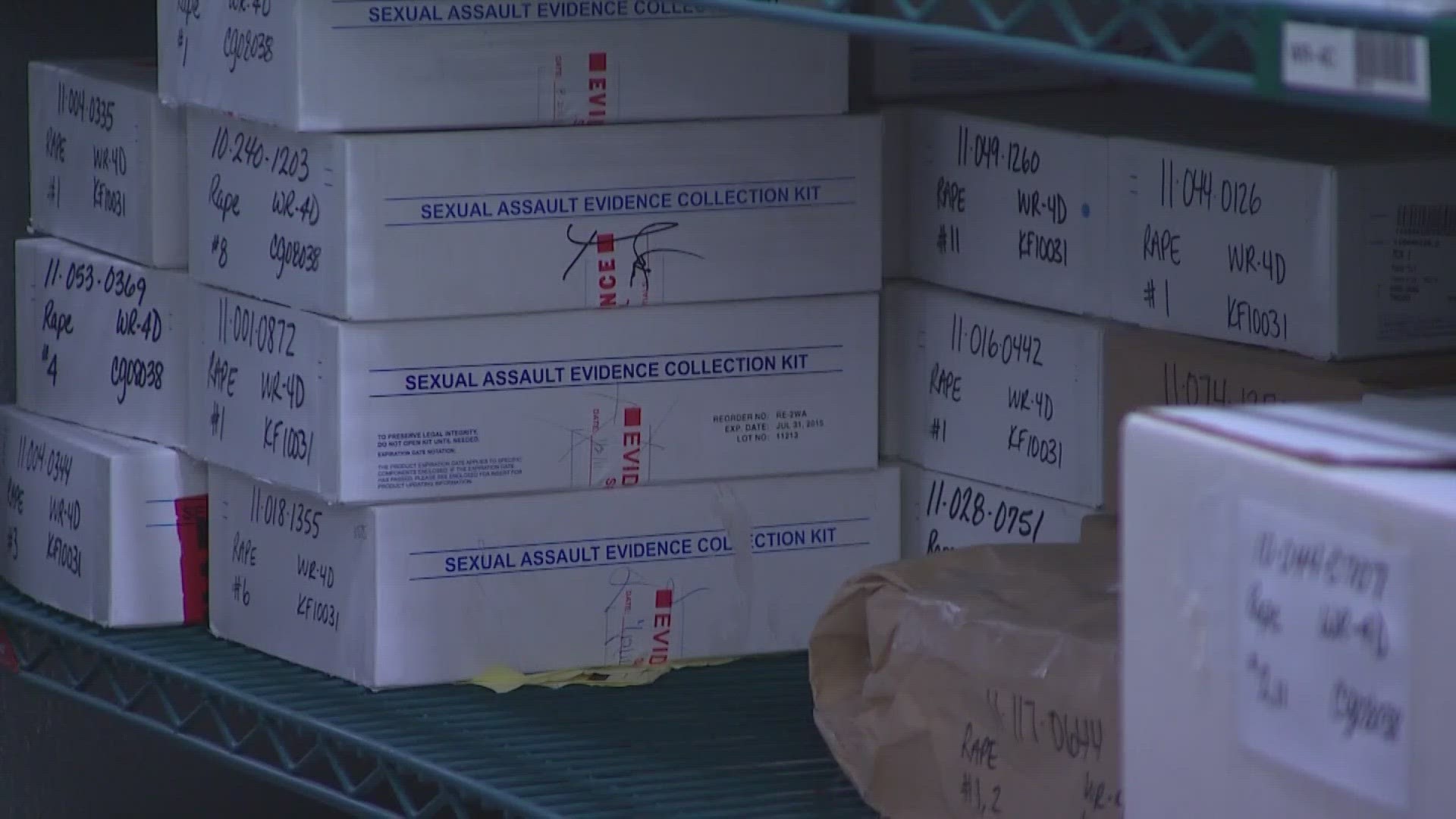SEATTLE — Washington state's significant backlog of over 10,000 sexual assault kits has "effectively been eliminated," Attorney General Bob Ferguson announced in a press conference on Thursday.
Back in 2014, there was 10,134 rape kits that had not been tested. More than 6,400 of those kits were sitting on shelves at law enforcement agencies across the state. Some of the rape kits dated back to the 1980s, delaying justice for survivors.
Ferguson said the last of the backlogged kits were cleared from shelves and sent to labs for testing. Clearing the backlog and testing the kits have helped solve at least 21 sexual assault cases but Ferguson said that number will grow over time. The kit testing has resulted in more than 2,100 hits in the national DNA database, known as CODIS. A "hit" is when a DNA sample matches a person or another case in the database, which generally consists of offenders.
Ferguson said the crimes in these hits were committed against adults and children, including a victim as young as 3 years old. These cases happened across Washington state between 2002 and 2015.
“Effectively ending our sexual assault kit backlog is a historic step toward justice — but our work on behalf of survivors is not done,” Ferguson said. “Through this collective effort, we ensured that survivors’ voices are heard, reformed a broken system, improved testing times, and solved crimes. This success proves that government can solve big problems when we work together. We are committed to working with our partners in law enforcement to prevent any more backlogs so we have the best chance of solving these serious crimes.”
In 2016, the Washington Legislature passed a tracking system that was the first of its kind to allow survivors to track their kits throughout the process - from collection at the hospital through private lab testing and eventually CODIS entry.
The next year, Ferguson created the Sexual Assault Kit Initiative (SAKI) team to expedite kit testing in private labs. In 2018, the SAKI team identified 6,725 rape kits that had not been submitted for crime lab testing.
The team started clearing the backlog in 2019, coinciding with House Bill 1166, legislation that required the state to process a sexual assault test kit within 45 days of receiving it.
“We’ve come a long way to create a system that delivers justice for survivors whose sexual assault kits sat forgotten on shelves in evidence rooms across the state,” said state Rep. Tina Orwall, D-Des Moines, whose first bill to address this issue was introduced in 2015. “When I first started this work, I was shocked to learn that thousands of sexual assault kits remained untested. Over the course of many years and through multiple bills we have committed to testing our state’s entire backlog of sexual assault kits, leading to the arrest and prosecution of many perpetrators. Now, with a system in place for the state to test every sexual assault kit within 45 days, we are supporting and empowering victims and survivors.”
Leah Griffin, a survivor of sexual assault, said it took 14 months to test her rape kit in 2014. She said that was the average amount of time it took to test an individual kit at the time.
“When I was assaulted in 2014, I struggled to convince law enforcement to test my sexual assault kit,” Griffin said. “To the over 10,000 other survivors who shared my experience, I want you to know that this was not your fault. You were not uncooperative. The system was not designed for you, which is why I’m so proud of the work that has been led by survivors in partnership with Attorney General Bob Ferguson to ensure that no survivor in Washington will ever struggle again to have the evidence of their assault tested.”
Rape kits have proven to be effective in helping solve cases. In 2019, a kit linked a registered sex offender living in Florida to a 2006 rape of a Seattle girl. The rape kit was not tested until 2018 because of the backlog.

